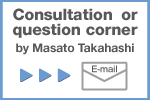

 Purpose
Purpose
Abuse of drugs, especially hormonal drugs, by athletes to enhance performance has been a serious problem in both professional and amateur sports. The most notable example is that of a famous short distance sprinter who was disqualified from the 1988 Seoul Olympics due to testing positive for use of the anabolic-androgenic steroid (AAS) stanozolol. In Japan, a notable incident involved a bodybuilder who had abused AAS, amphetamines and some hormonal drugs and murdered a policeman in Yokohama Chinatown in 1993. Surprisingly, drug abuse among power lifters was discovered in the 2000 Sydney Paralympics as well. Evidence indicates that AAS abuse among athletes is widespread, and the side effects elicited by AAS abuse have been extensively reported. Recently, AAS abuse among baseball players in the United States has become a problem. Among the extensive and serious side effects elicited by AAS abuse, psychotic states and infertility have serious social implications. Furthermore, Evance reported that skeletal muscle hypertrophy along with acne, striae, and gynecomastia are frequent physical side effects associated with megadoses of steroid. In male rats, the appearance of these side effects was stimulated by administration of AAS.
Many athletes and exercise enthusiasts abuse drugs in Japan also. Takahashi reported two cases of doping by Japanese athletes and has consulted with AAS abusers among Japanese athletes. These reports emphasized the growing problem of drug abuse among Japanese athletes, and suggested the need for greater anti-doping efforts and treatment programs for the deleterious side effects of these drugs. However, no medical facilities in Japan provide medical consultation programs for these drug abusers. Therefore, drug-abusing athletes typically exchange information and consult with each other via Internet web sites. These athletes admit using many endocrinological agents, especially AAS. Information on such web sites indicates that these athletes are also using substances like growth hormone (GH) or insulin-like growth factor (IGF-I). With this background, as an anti-doping effort we began to perform consultations via the Internet with many athletes regarding the side effects of drug abuse.
I perform counseling sessions from the viewpoint of anti-doping by Internet. At first, I state that I adhere to the obligation of maintaining confidentiality as a medical doctor. I do not need the caller's full name. However, I need to know his/her gender, competition specialty, and the name of the country so that I can give an appropriate consultation. I hope that all callers understand that this is necessary.